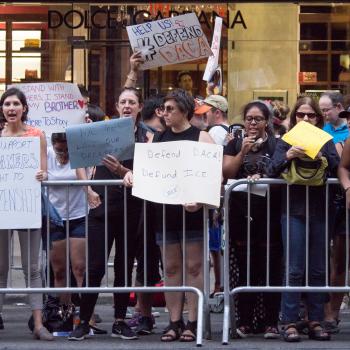
By Jim Coppoc
We’ve all seen the memes. Jesus was a Jewish socialist. Anti-government, common purse, free healthcare for lepers…
But is it true?
No.
Socialism is a 19th century political movement, rooted in Industrial Age class consciousness. Christ worked in a first century idiom of empire, built around the political systems of his day. Socialism would have been as foreign to him as Tetrarchs and Sadducees are to us.
But the question of Christ and socialism does bring up an interesting thought experiment. If Christ were alive today, what would he have to say about the politics of the American Left?
The government of Christ’s time was, well, complicated. Rome had taken Jerusalem from the Parthians just a generation before. A succession of kings and other authorities governed Judea and licensed tax collectors on Caesar’s behalf. Local sects battled for religious and political power. Order was kept by centurions and their soldiers. Politics and politicians were everywhere, and Christ and the apostles were bound to bump up against them wherever they ministered.
We know what Peter and Paul felt. In the era they inhabited, kings and emperors were believed to be appointed by God, and to resist them meant to resist God himself.[1] Even Jesus appears to acknowledge Pilate’s God-given authority as a representative of the Roman empire[2] and to agree with the Pharisees and Herodians that citizens should pay their taxes.[3] But these statements all apply only to rulers appointed by God. In cases where people chose their own leaders (like democracy), the Bible is clear that God divested completely from the outcome.[4] Additionally, even Biblical leaders God did appoint lost their endorsement when they behaved in ungodly ways.[5]
It is this same division—between godly and ungodly rulers—that drives the New Testament writers to both exemplify and command resistance where governments fail to serve and support those they govern. In Ephesians, for example, Paul states unequivocally that the Christian struggle is against “rulers” and “authorities” in “this dark world.”[6] Peter, too, along with with other apostles calls Christians to “obey God rather than any human authority,”[7] and Peter, Paul and John actively engage in nonviolent resistance, speaking out against the powers of their time.[8] More to the point, just about the entire story of Jesus is one of nonviolent (and sometimes violent) action against the religious and political authorities who eventually execute him for it.
Christ’s instructions to Christians are clear in every Gospel. Love God, and love your neighbor.[9] If your neighbor needs food or clothing, give it to them.[10] Bring the poor, crippled, lame and blind to the feast.[11] Welcome strangers, and support the sick and imprisoned.[12] Whatever good you do for the least of these, you also do for God.[13]
As Christians in democratic societies, we are given one political tool Christ never was—our vote. If we want to oppose the Pharisees of our day, or drive the money changers out of the temple, or debate “truth” with Pilate, all we need do is get to the polling place, and vote our Christian values. Any fair reading of Christ’s words leaves very little doubt exactly what those are. This is our resistance, and our service to the God and the neighbor we are called to love.
Jim Coppoc is a poet, songwriter and seminarian with a long and sordid history in the halls of academia. He lives in Ames, IA, and works for a local hospital. For more on Jim, visit jimcoppoc.org.
- [1] Ro. 13: 1-2, Col. 1:16, 1 Pt. 2:13:17; cf. Dn. 2:21, Ps. 75:7, Pr. 8:15
- [2] Jn. 19:10-11
- [3] Mk. 12:17; cf. Mt. 22:15-22, Lk. 20:20-26
- [4] 1 Sa. 8: 4-18, Ho. 8:4
- [5] Dn. 4:26-27, Ps. 2:10-12
- [6] Eph. 6:12
- [7] Acts 5:29
- [8] Acts 4:18-20, and every epistle written from jail
- [9] Mt. 22:37-40; cf. Mk. 12:29-34, Lk. 10:26-28, Jn. 13:34-35
- [10] Lk. 3:11
- [11] Lk. 14:12
- [12] Mt. 25:35
- [13] Id.













